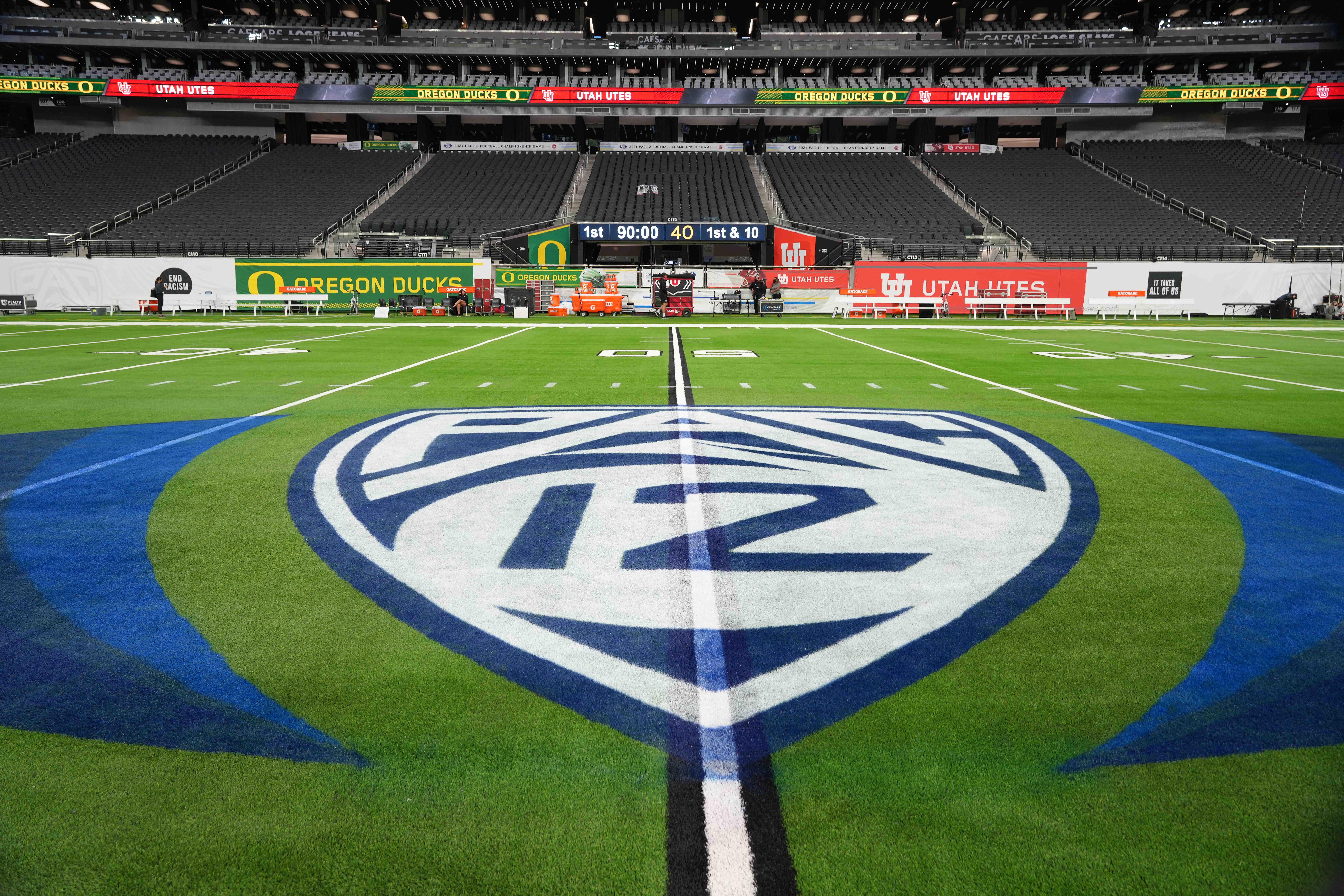The college landscape will change significantly on July 1 — at least for 14 FBS schools.
Central Florida, Houston, BYU, and Cincinnati will join the Big 12, Charlotte, FAU, North Texas, Rice, UAB, UTSA will move to the American Athletic Conference, and Jacksonville State, Liberty, New Mexico State, and Sam Houston will join Conference USA.
Last summer, USC and UCLA announced plans to leave the Pac-12 for the Big Ten starting in 2024, chasing after the latter’s media rights deals valued at $7 billion.
ESPN has shown little interest in renewing its media rights deal with the Pac-12. More schools could depart the conference if a lucrative rights deal isn’t signed, with Colorado reportedly considering a move to the Big 12.
CBS Sports writer and college football analyst Barrett Sallee explained how the Pac-12’s media rights deals could trigger widespread conference realignment.
Listen to the full episode on Front Office Sports Today.
Sallee on impending conference realignment: We’re gonna see a lot of movement since the Pac-12 media rights deal is sort of all over the place — we’ve seen Apple kinda go away, we’ve seen the CW kind of go. The Pac-12’s a big-time mess right now, due in large part to Larry Scott, the former commissioner who really sent this whole thing into a spiral 10 years ago.
I think that has opened the door for other conferences to go fishing. … If the Pac-12 media rights deals fall apart or just aren’t very attractive to some schools that might be willing to leave or want to leave, then the Big 12 might start making some moves. Then you’re gonna see the Pac 12 make some moves [and] the Mountain West probably make some moves.
On whether geography matters to conferences: Obviously, it doesn’t matter to the Big Ten at all. It does vary. I think it does matter to the ACC at least for now, partly because they’re locked into their deal. For the SEC, I guess it matters a little bit because traditionally, you want Southern football to be Southern football, and partly because there’s nobody else out there worth getting. If you’re the SEC, why do you add an average-to-slightly-above-average team program if it doesn’t help you? … If the SEC wants to go get Oregon and Washington, which might be two huge fish, is that even worth it to go across the country and get those two teams? Probably not.
On a conference facing termination: I think it’s possible for maybe the Mountain West, although I doubt it. If we’re creating pie-in-the-sky scenarios, let’s just say the Pac-12 loses the two Arizona schools or Colorado and Utah, and then Oregon and Washington. That could mean the Mountain West just gives all of their teams to the Pac-12. And then what happens to the Mountain West? Do you combine with the Sun Belt? I don’t know the answer to that.
On whether the Power Five will break away from the NCAA: It’s kind of already happened. The financial disparity between the Power Five and the Group of Five is just so big … and it’s only gonna grow. The expanded playoffs are gonna allow a little more access to some Group of Five teams, but they still don’t have those TV deals. They still don’t have the distribution that the main conferences have. If we’re talking about there being a lack of suitors for the Pac 12, what does that mean for the rest of them? It means that there’s still not any suitors for them, either. So the money gap’s going to continue to get bigger and bigger.
On sports betting problems in the NCAA: I think the rules in these sports just haven’t caught up to the reality of how people live their lives and how fans, both athletes and non-athletes, enjoy sports. So I think it’s a problem in the sense that if you’re going to tell people they can’t place a baseball bet or use DraftKings or Prize Picks or whatever, that’s a little ridiculous.
I think the one thing that was just ridiculous about that story [with Alabama and Brad Bohannon], a lot of folks were saying gambling’s just destroying college athletics — and you can’t legalize it because you’re gonna get coaches and players throwing games. Legalized gambling actually stopped it from happening — we wouldn’t know about this had it not been for legalized gambling and casinos and sportsbooks looking out for their bottom line.







![[Subscription Customers Only] Jun 15, 2025; Seattle, Washington, USA; Botafogo owner John Textor inside the stadium before the match during a group stage match of the 2025 FIFA Club World Cup at Lumen Field.](https://frontofficesports.com/wp-content/uploads/2026/02/USATSI_26465842_168416386_lowres-scaled.jpg?quality=100&w=1024)
![[Subscription Customers Only] Jul 13, 2025; East Rutherford, New Jersey, USA; Chelsea FC midfielder Cole Palmer (10) celebrates winning the final of the 2025 FIFA Club World Cup at MetLife Stadium](https://frontofficesports.com/wp-content/uploads/2026/02/USATSI_26636703-scaled-e1770932227605.jpg?quality=100&w=1024)








